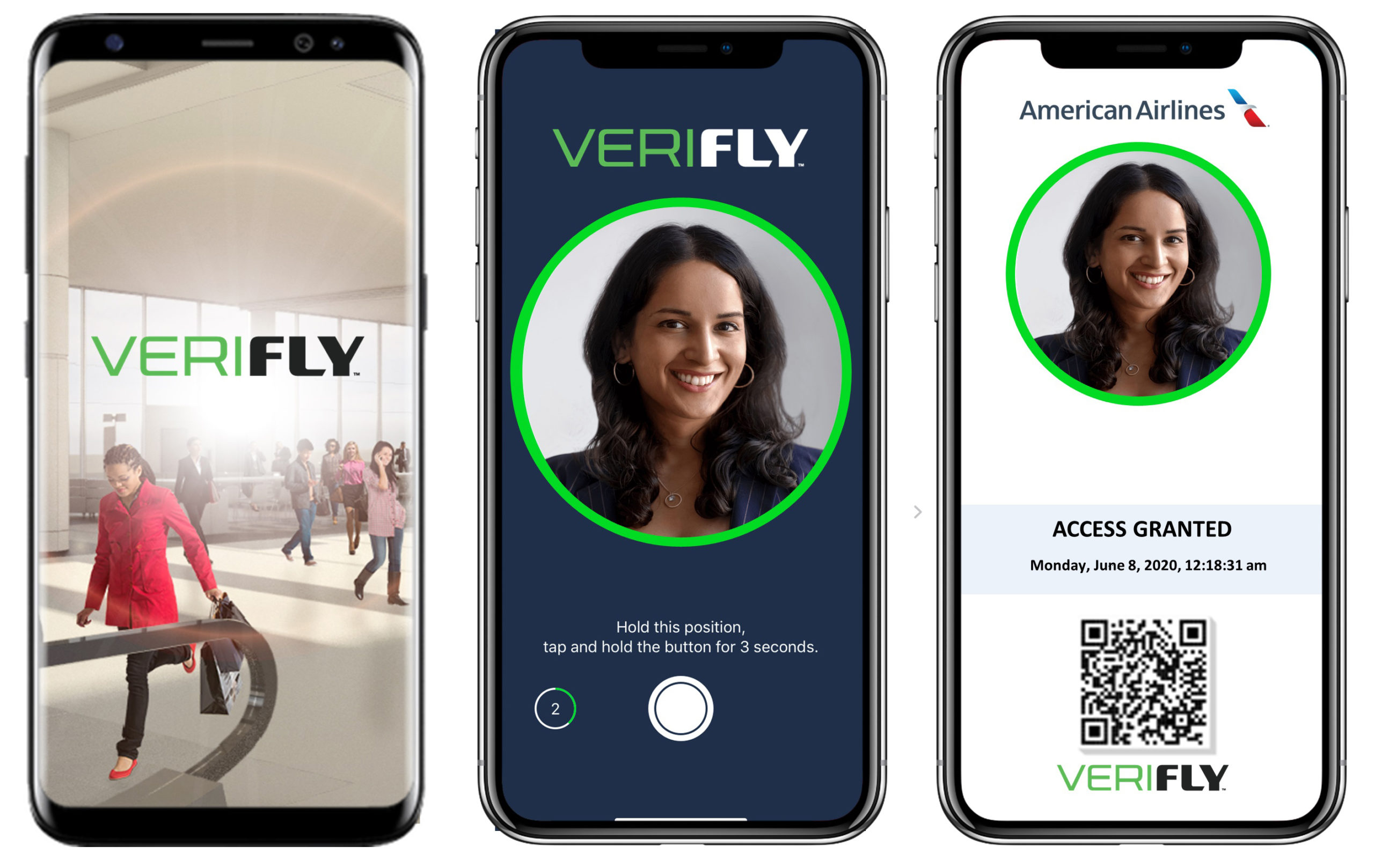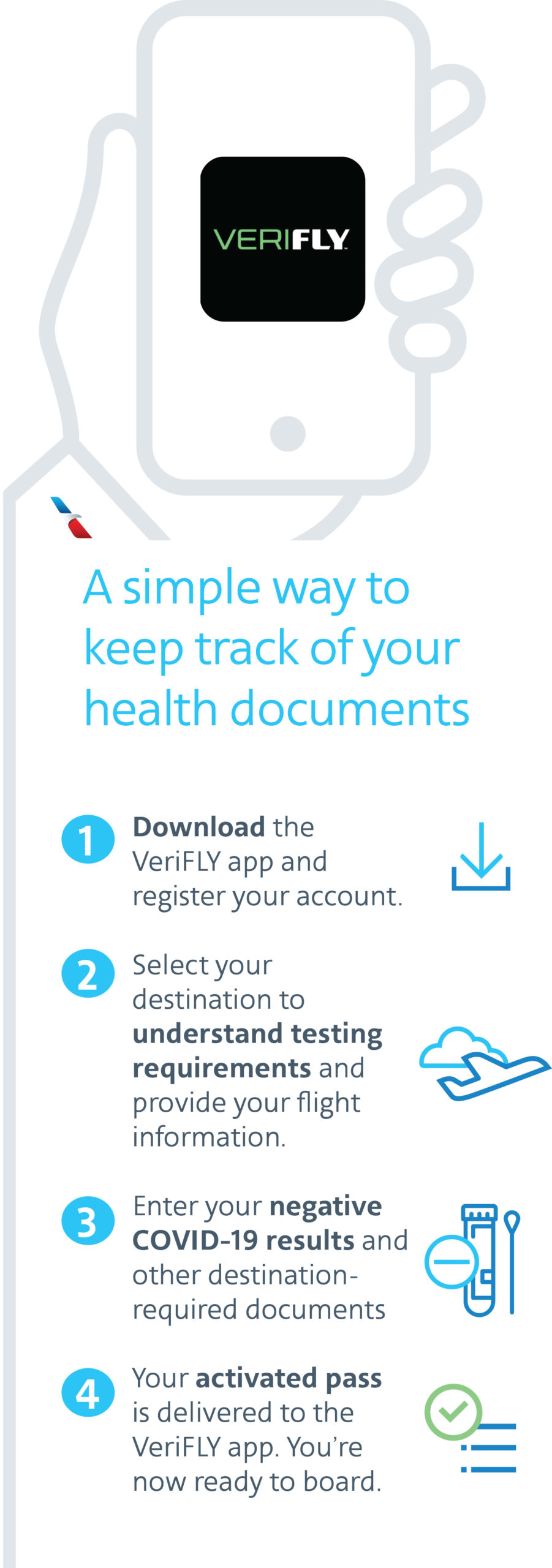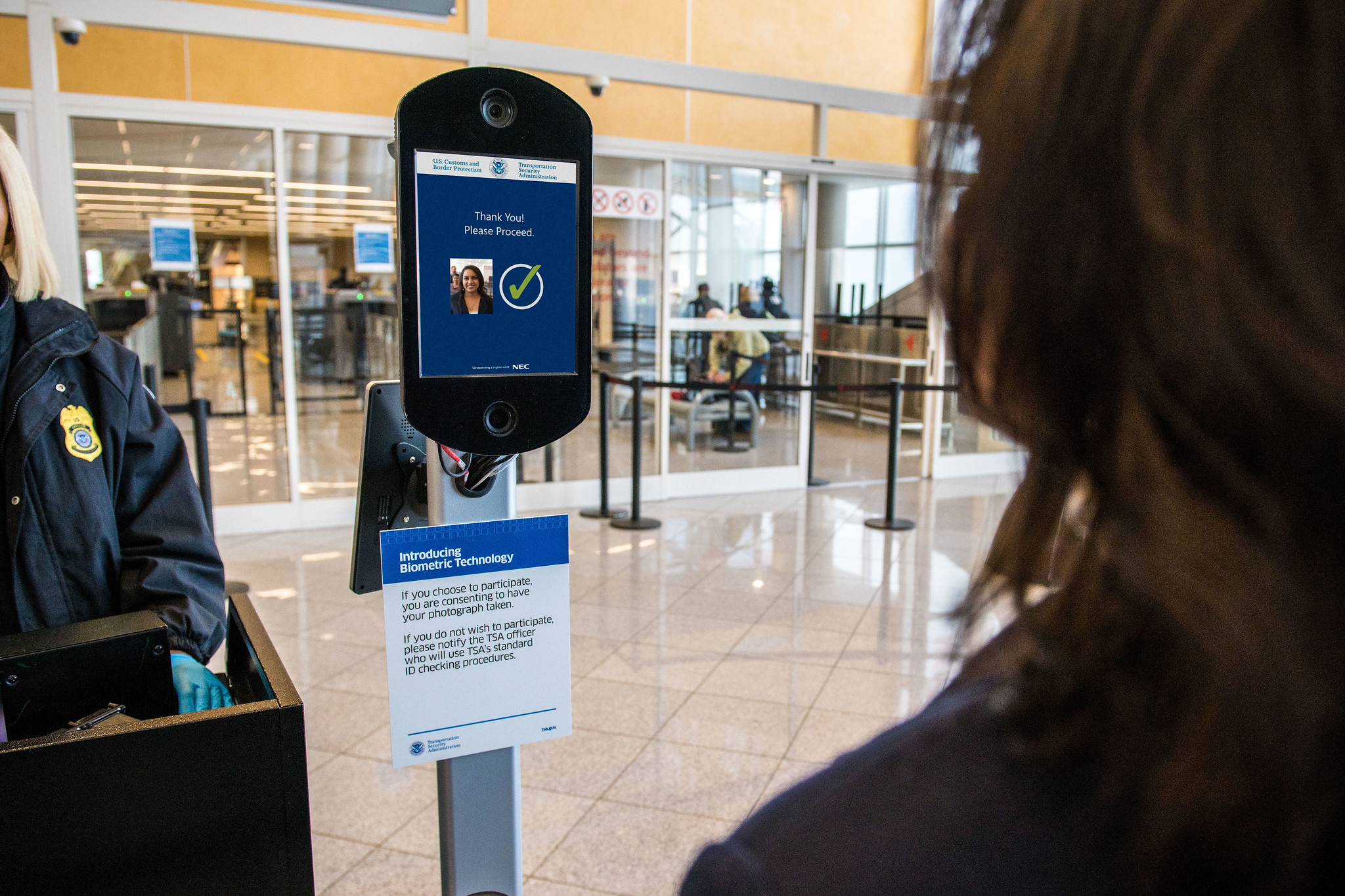Identity Review | Global Tech Think Tank
Keep up with the digital identity landscape.
Although the aviation industry remains impaired by the ongoing COVID-19 pandemic, airlines are continuing to implement enhanced biometric offerings as part of their dedication to facilitating passenger experience and safety. Within the past month, several U.S. airlines have unveiled new amenities that expand upon their existing biometric services, particularly in collaboration with biometrics software company Daon and its product VeriFLY. Identity Review has set out to investigate these latest innovations within airline travel and public security.
In partnership with American Airlines and Alaska Airlines, VeriFLY can be used to confirm COVID-19 test results and additional travel documents. The app is currently offered on the iOS App Store and Google Play Store.
In order to utilize the product, passengers create an account, list their destination and submit the necessary documentation for international travel. According to VeriFLY, the app’s design safeguards the privacy and biometric data of the user with secure mobile authentications.
American Airlines, recognized as the world’s largest airline, is extending its mobile health passport to cover more international travel. Using the VeriFLY app, American now offers customers a simple procedure to authenticate negative COVID-19 test results along with other necessary documents.
Following a recent order from the Centers for Disease Control, all passengers flying from international destinations to the U.S. are required to test negative for COVID-19 within three days of the flight. After receiving a test, passengers must provide evidence of a negative result before boarding flights.
Following a trial for the VeriFLY health passport late last year on American’s Miami to Jamaica and Chile routes, the Fort Worth-based airline gradually expanded to additional Latin American markets such as Colombia and Guatemala. In January, American expanded access for the health passport to all flights from foreign destinations to the U.S.

“We are constantly looking at ways to make travel easier and simpler for our customers, and navigating testing requirements and validation is a big piece of that,” says Julie Rath, American Airlines Vice President of Customer Experience. “We support the implementation of a global program to require COVID-19 testing for travelers to the United States, and we want to do everything we can to make travel a seamless experience for customers. We’ve received positive feedback about the app so far and look forward to more customers having the opportunity to use it.”
This month, American announced it would further expand its coverage of the VeriFLY app. The carrier will now offer VeriFLY’s document verification on flights from the U.S. to eight countries—Canada, Chile, Colombia, El Salvador, Guatemala, Honduras, Jamaica and the United Kingdom—in addition to all international flights to the U.S.
Additionally, British Airways, one of American Airlines’ transatlantic joint venture partners, will offer the VeriFLY app for flights from London to the United States.
Alaska Airlines Also Integrates VeriFLY for Verification
Seattle-based Alaska Airlines, a partner of American Airlines and an upcoming Oneworld Alliance member, is another airline offering the VeriFLY app to customers. Since February 5, Alaska Airlines passengers arriving in the U.S. from international destinations have been able to expedite their COVID-19 verification process with the app.

Delta Air Lines is also refining every detail of its passenger experience. Last month, the Atlanta-based carrier announced the launch of digital ID tests at its Detroit hub for domestic flights. This optional service will offer customers accelerated screenings at the domestic TSA checkpoint in Delta’s McNamara Terminal.
Passengers must have a passport number and TSA PreCheck membership to participate in this program. Using facial recognition technology, cameras take a picture of the passenger, encrypt the photo and remove all biographic information, send it to the U.S. Customs and Border Protection’s biometric matching service, and verify the traveler’s identity. Delta asserts it does not store or plan to save any biometric data.
“When it comes to pulling forward the future of Delta’s customer experience, we think big, start small and scale fast, letting innovation lead the way as we continuously listen to customer feedback,” says Delta Air Lines Chief Customer Experience Officer Bill Lentsch. “The COVID-19 pandemic has only deepened the importance of providing a touchless experience for our customers. We plan to expand curb-to-gate facial recognition and digital ID beyond the Detroit test so that all of our customers can enjoy a seamless, touchless travel experience across our network.”

Biometric technology is no stranger to the Delta brand. In December 2018, Delta launched the United States’ first biometric terminal at its international concourse in Atlanta. Passengers flying to an international destination with Delta Air Lines or any of its partners—such as Aeromexico, Air France, KLM and Virgin Atlantic—have the option to use facial recognition technology to check-in, drop baggage, proceed through TSA checkpoints and board flights. Additionally, for customers arriving from international destinations, they have the ability to use biometric screenings to advance through customs.
Delta touts itself as “the industry leader in biometrics.” Since 2018, the airline has gradually expanded facial recognition technology to its other major hubs and key destinations such as Los Angeles, New York JFK, Portland, Boston and more.
Industry moves like these will make airline companies like Delta and American pivotal for the advancement of digital identity technologies. It will be compelling to see what will come next.
ABOUT THE WRITER
Roger Lu is an aviation enthusiast and analyst researching the implications of technology on global travel. He enjoys writing about how data is utilized in the context of aviation security and customer experience.
Do you have information to share with Identity Review? Email us at press@identityreview.com.